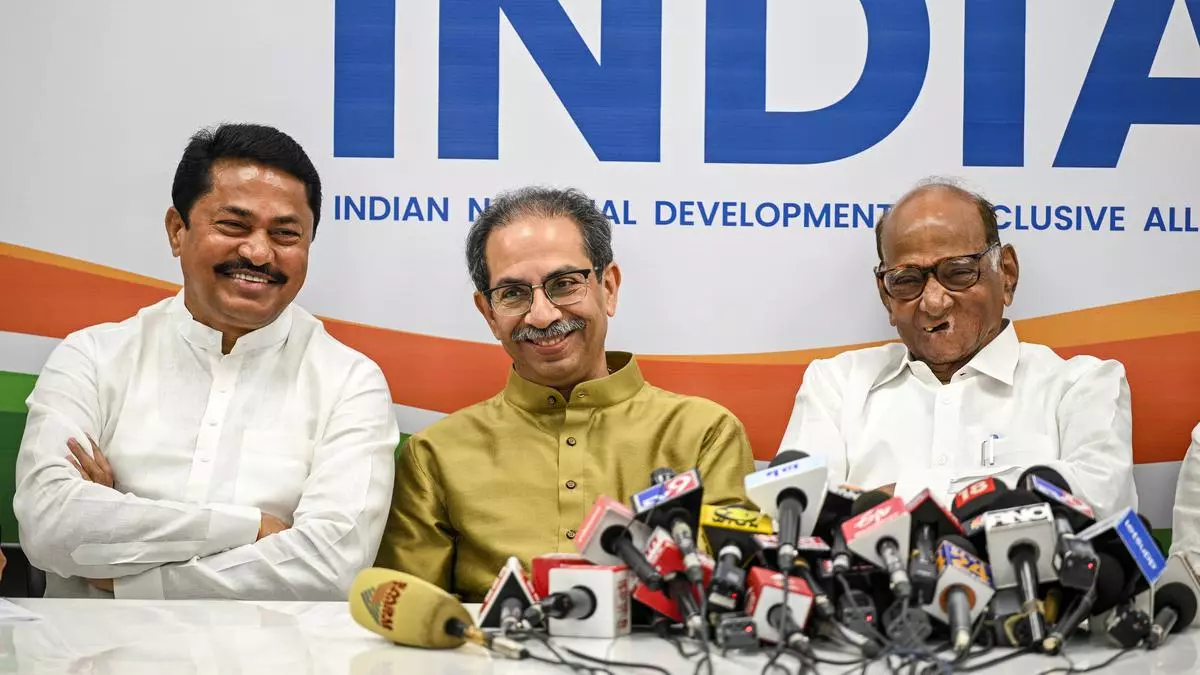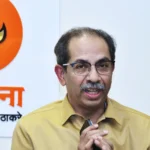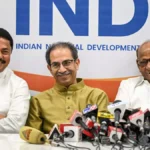With the state assembly elections coming up, Maharashtra’s political landscape is getting more complicated and volatile. The Maha Vikas Aghadi (MVA) coalition of the Congress, NCP, and Shiv Sena (UBT) has emerged as a formidable rival to the ruling alliance of the BJP and Shiv Sena (Shinde faction) after the state has seen a number of realignments and betrayals[1].
Uddhav Thackeray’s Comeback
Uddhav Thackeray, the leader of the Shiv Sena (UBT), has been leading this political change by reevaluating his approach and rising to prominence ahead of the elections. His ability to engage a diverse variety of followers, including both younger voters and traditional Shiv Sena members, is evident from the sizeable numbers that his recent rallies have drawn[1]. Unlike the more dogmatic stances of the past, Thackeray’s wording stresses a return to the party’s roots while fostering inclusivity[1].
Voter Fatigue and Local Dynamics
There isn’t a clear trend supporting one party over the other in the approaching elections. Rather, local dynamics have assumed a central role, with disparate constituencies presenting distinct opportunities and challenges[1]. Political allegiances are brittle, and when choosing candidates, local narratives frequently trump national ones[1]. As demonstrated by the Congress’s resurgence and the MVA allies’ vote consolidation, voters appear tired of communal politics[1]. In this context, the BJP’s use of national topics like Hindutva and the Ram Mandir has not had the desired effect[1].
Investigative Agencies’ Function
The employment of investigative agencies by the central government has further complicated the political environment in Maharashtra[1]. Concerns regarding the impartiality of the election process have been raised by allegations of politically motivated acts, such as the Enforcement Directorate calling candidates shortly after their nomination[1]. Many think that the purpose of this tactic is to defame opposition leaders and turn public opinion against them[1].
The Horizon and the Risks
The stakes are bigger than ever as election day draws near. The outcome would be largely dependent on Uddhav Thackeray’s capacity to inspire people and articulate a vision for Maharashtra’s future[1]. Unlike the BJP’s nationalistic rhetoric, his story of inclusivity and local empowerment resonates with a population that is becoming more and more apprehensive about divided politics[1].
Maharashtra’s 2024 Lok Sabha elections are predicted to be a watershed in Indian politics—not just for the state but for the nation overall[1]. The results will probably reflect the voters’ desire for change and rejection of the status quo, as they are looking for meaningful representation and accountability[1]. This transformation is symbolized by Uddhav Thackeray’s return to prominence in politics, and the way he performs in the next elections will be widely monitored to determine the course of Maharashtra politics[1].
In conclusion, the political drama playing out in Maharashtra is evidence of the intricacy of Indian democracy, where local issues and personalities frequently trump national narratives[1]. Voters in the state will have to decide between divisive politics and close links to their community, which will have a big impact on Maharashtra’s future[1].
Referral:
[1] https://maharashtraelection.in/maharashtra-unfiltered-raw-politics-daily-delivered-20-august-2024/
[2] https://maharashtraelection.in/maharashtra-unfiltered-raw-politics-daily-delivered-16-august-2024/
[3] https://maharashtraelection.in/maharashtra-unfiltered-raw-politics-daily-delivered-20-july-2024/
[4] https://mpcb.gov.in/sites/default/files/focus-area-reports-documents/SoEreport_Maharashtra.pdf
[5] https://www.youtube.com/watch?v=ycMqCHUTYws
[6] https://indianexpress.com/shifali/
[7] https://www.amazon.in/WHAT-THERE-WAS-CONGRESS-Independent-ebook/dp/B0CQCJ1MDS
[8] https://maharashtraelection.in/maharashtra-unfiltered-raw-politics-daily-delivered-25-july-2024/










